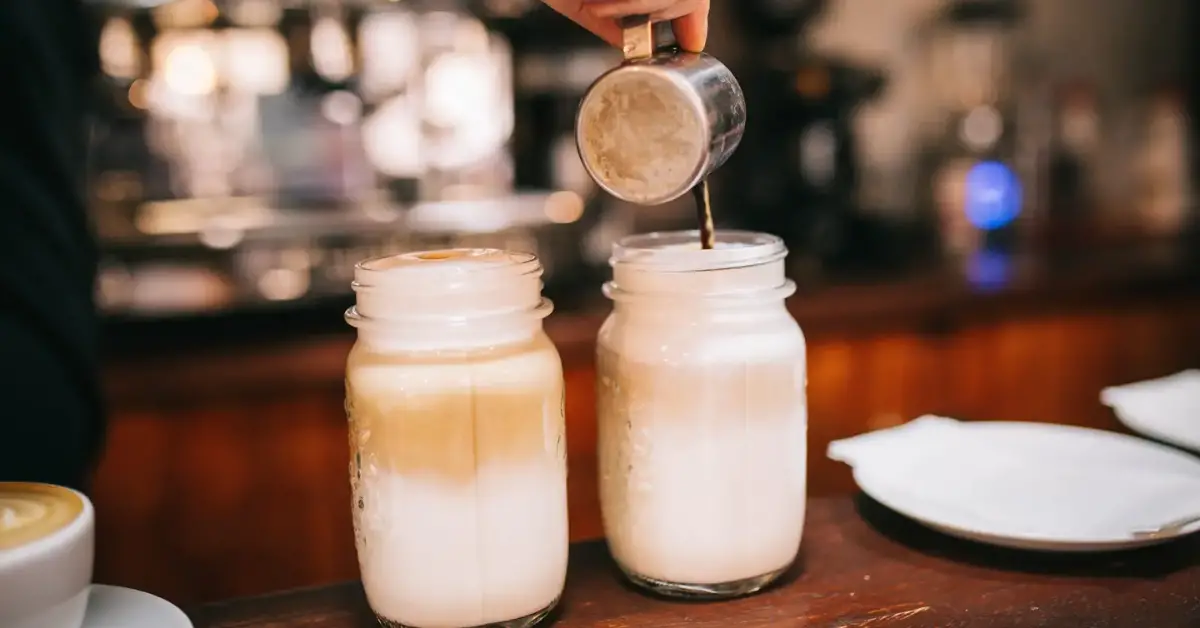The UK government is considering expanding its sugar tax, which currently targets fizzy drinks, to include milkshakes and similar beverages. This potential move will impact both dairy-based and non-dairy alternatives, following an earlier announcement made by Chancellor Rachel Reeves in the Autumn Budget last year. Reeves suggested that the government would explore broadening the scope of the tax to cover these beverages as part of a larger strategy to reduce sugar consumption and combat obesity.
The new proposal would remove the current exemption for milkshakes and other similar drinks from the existing levy. As part of the government’s ongoing anti-obesity efforts, the Treasury has confirmed that it plans to implement this change, which will apply not only to milkshakes but also to milk-based drinks and certain plant-based milk alternatives.
Additionally, the Treasury has proposed reducing the maximum amount of sugar allowed in drinks before they become subject to the levy, from 5g to 4g per 100ml. This adjustment aims to bring more drinks under the tax, further incentivising manufacturers to lower sugar content in their products.
The plans are currently open for public consultation, with the Treasury inviting feedback on the proposals until July 21. This consultation period offers citizens and stakeholders the opportunity to share their views on the potential impact of these changes. In essence, the government is considering a significant shift in its approach to tackling sugar consumption, particularly among young people, who are known to consume a large amount of sugar through sugary drinks such as milkshakes.
The Soft Drinks Industry Levy (SDIL) was introduced in April 2018 by the previous Conservative government as part of its anti-obesity strategy. Initially, the levy applied only to sugary fizzy drinks, with milk-based drinks being exempted from the tax.
The exemption was included due to concerns about calcium intake, particularly among children, who rely on milk for their calcium needs. However, the Treasury recently noted that children now only get 3.5% of their daily calcium intake from milk-based drinks, raising questions about whether the health benefits of these drinks outweigh the risks posed by their high sugar content.
According to government analysis, around 203 pre-packed milk-based drinks would be impacted by the proposed tax unless manufacturers reduce the sugar content in these products. These milk-based drinks represent 93% of sales within the category.

The move to include milk-based and milk substitute drinks in the SDIL is seen as a way to encourage manufacturers to make further efforts to reduce sugar levels, building on progress already made since the introduction of the tax in 2018.
In the years since the SDIL was implemented, many manufacturers have reformulated their products to reduce the sugar content. The Treasury reported that 89% of fizzy drinks sold in the UK are no longer subject to tax, thanks to these reformulation efforts.
This reformulation trend has been viewed as a success in reducing the sugar content in drinks. Still, the government believes that more can be done, particularly in the area of milk-based beverages. The inclusion of these drinks in the tax would, in theory, provide manufacturers with a financial incentive to continue reducing sugar in their products.
However, not everyone is in favour of the proposed expansion of the sugar tax. The Institute for Economic Affairs (IEA), a free-market think tank, has raised concerns about the potential cost to consumers. Christopher Snowdon, the head of lifestyle economics at the IEA, criticised the tax, calling it a “dramatic failure.”
He argued that sugar taxes have not been effective in reducing sugar consumption in other countries. He suggested that the UK should focus on repealing the tax rather than expanding it. Snowdon also questioned the government’s commitment to avoiding tax increases on working people, a promise made by Labour leader Sir Keir Starmer.
While there is ongoing debate about the effectiveness of sugar taxes, the government has defended its proposal, arguing that it is necessary to address the growing concerns about obesity and sugar consumption. The inclusion of milk-based and milk substitute drinks in the SDIL, according to the Treasury, would provide a clear incentive for manufacturers to reduce sugar levels in their products, which could ultimately benefit public health.
The consultation on the plans will enable stakeholders, including manufacturers, public health experts, and members of the public, to share their views on the proposed changes. This will likely shape the government’s final decision on whether to proceed with the plan or make adjustments based on the feedback received. The consultation process is expected to run until July 21, after which the government will decide on the next steps.
In conclusion, the UK government is moving forward with plans to extend the sugar tax to include milkshakes and milk-based drinks. This proposal is part of a broader strategy aimed at tackling obesity and reducing sugar consumption, particularly among young people.
While the government believes that the expansion of the tax will encourage manufacturers to reduce sugar in their products, there is significant opposition from some groups, such as the Institute for Economic Affairs, which questions the effectiveness of sugar taxes. As the consultation period unfolds, it will be important to consider the potential impact of these changes on consumers and the broader food and drink industry.
Disclaimer: This article has been meticulously fact-checked by our team to ensure accuracy and uphold transparency. We strive to deliver trustworthy and dependable content to our readers.




